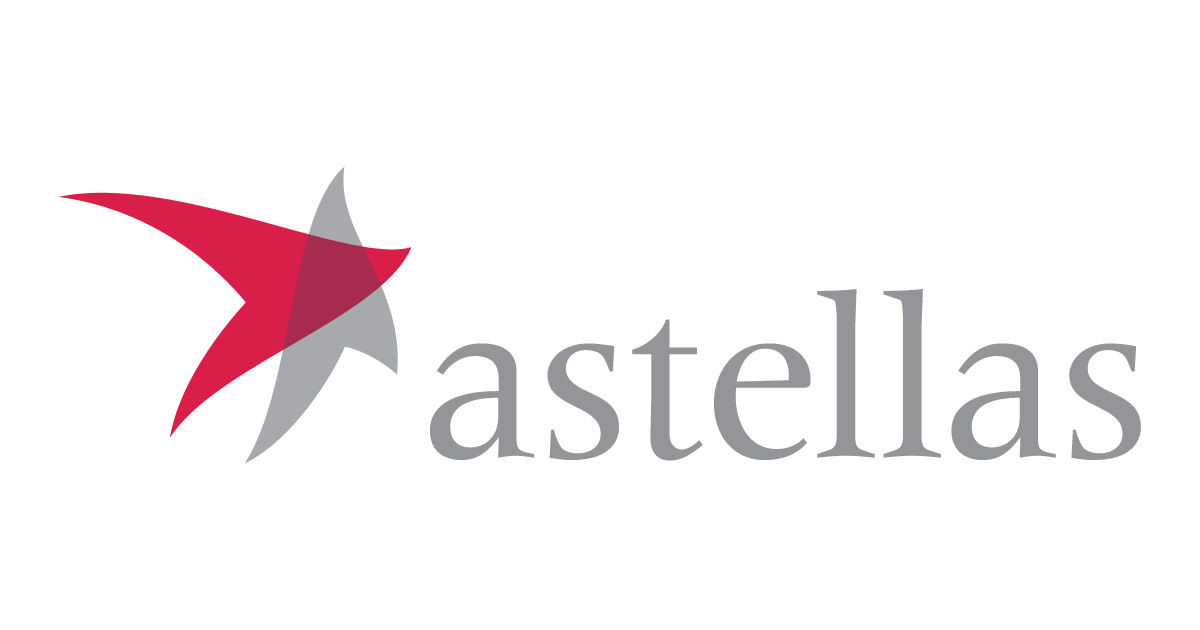预约演示
更新于:2025-05-07
TAM family x AXL
更新于:2025-05-07
基本信息
相关靶点 |
关联
127
项与 TAM family x AXL 相关的药物作用机制 AXL抑制剂 [+1] |
最高研发阶段批准上市 |
首次获批国家/地区 日本 |
首次获批日期2018-09-21 |
作用机制 AXL抑制剂 [+10] |
在研机构 |
原研机构 |
在研适应症 |
最高研发阶段批准上市 |
首次获批国家/地区 美国 |
首次获批日期2012-11-29 |
作用机制 AXL抑制剂 [+2] |
在研机构 |
原研机构 |
非在研适应症 |
最高研发阶段临床3期 |
首次获批国家/地区- |
首次获批日期1800-01-20 |
560
项与 TAM family x AXL 相关的临床试验NCT06794229
A Phase II, Open-label, Single-arm Study of nEoadjuvant Zanzalintinib (XL092) Plus nivoLumab in Patients With lOcally Advanced and/or inopeRable clEar Cell Renal Cell Carcinoma With or Without Non-measurable Metastasis (EXPLORE-RCC)
All subjects will receive zanzalintinib 100mg orally (PO) once daily plus nivolumab standard of care dosing (i.e., 240mg IV every 2 weeks or 480mg IV every 4 weeks) for a total of 12 weeks, followed by restaging scan/evaluation for surgical operability and an adaptive approach that includes (1) surgical resection if the participant is eligible for surgery (Cohort A), (2) up to 48 weeks total (from Cycle 1 Day 1) of zanzalintinib plus nivolumab if the participant has partial response or stable disease but remains inoperable (Cohort B1), or (3) stopping protocol mandated treatment to receive standard of care systemic therapy and continue follow up per protocol if the participant has disease progression (Cohort B2).
开始日期2025-11-01 |
申办/合作机构 |
NCT06926634
Zanzalintinib Maintenance in Patients With High Grade Neuroendocrine Neoplasms (HG-NENs)
The investigators hypothesize that zanzalintinib maintenance therapy after initial cytotoxic chemotherapy can prolong the progression-free survival (PFS) in patients with high-grade NENs.
开始日期2025-07-31 |
申办/合作机构 |
100 项与 TAM family x AXL 相关的临床结果
登录后查看更多信息
100 项与 TAM family x AXL 相关的转化医学
登录后查看更多信息
0 项与 TAM family x AXL 相关的专利(医药)
登录后查看更多信息
2,709
项与 TAM family x AXL 相关的文献(医药)2025-06-01·Journal of Virus Eradication
Human CD123+AXL+ dendritic cells express Siglec1 that captures and transmits HIV-1 particles to the T cells
Article
作者: Cheng, Liang ; Zhang, Liguo ; Li, Guangming ; Yu, Haisheng ; Su, Lishan ; Cao, Yinghui
2025-05-01·Biochemical and Biophysical Research Communications
Drugging the Undruggable and beyond: Emerging precision oncology approaches to target acquired resistance to KRAS G12C and KRAS G12D inhibitors
Review
作者: Nandakumar, Krishnadas ; Kale, Ramesh ; Ranganath Pai, K Sreedhara ; Samant, Charudatt ; Bhonde, Mandar
2025-05-01·European Journal of Ophthalmology
Characterization and topographical analysis of choroidal caverns in young and healthy individuals
Article
作者: Costanzo, Eliana ; Querques, Giuseppe ; Quarta, Alberto ; Rissotto, Federico ; Polito, Maria Sole ; Dobovsek Divjak, Darja ; Di Noia, Michele ; Sacconi, Riccardo ; Fragiotta, Serena ; Toto, Lisa ; Parravano, Mariacristina
374
项与 TAM family x AXL 相关的新闻(医药)2025-04-29
点上方蓝字“ioncology”关注我们,然后点右上角“…”菜单,选择“设为星标”2025 CSCO指南会 微专辑扫描二维码可查看更多内容由中国临床肿瘤学会(CSCO)和北京市希思科临床肿瘤学研究基金会联合主办的“2025 CSCO诊疗指南大会”于4月18-19日在济南召开。CSCO子宫内膜癌指南专家组综合考虑国内、国外的研究进展以及药物的可及性,对2025版CSCO子宫内膜癌指南进行修订。本文介绍“子宫内膜癌新进展及指南更新要点”。2024 Cancer stalistics首次报道子宫内膜癌新发病例数超过宫颈癌,位于女性生殖道恶性肿瘤首位;子宫内膜癌死亡率首次进入女性恶性肿瘤前10,且死亡率首次超过卵巢癌。子宫内膜癌早期预后较好,复发/晚期/特殊类型子宫内膜癌预后不佳。目前,妇科肿瘤的治疗已经逐渐走向精准治疗之路,根据疗效预测标记物确定获益人群成为发展方向,靶向治疗和免疫治疗是目前的研发焦点。早期子宫内膜癌的分子分型:预后与治疗效果CSCO子宫内膜癌指南建议对所有子宫内膜癌进行分子分型检测。指南将分子分型与传统病理因素进行整合,对患者进行风险分层。参考依据根据一项比较FIGO 2018与FIGO 2023分期生存差异的大型回顾性研究,在最初分期为IA期的子宫内膜癌症患者中,分期变化患者与无分期变化患者存在一定的生存差异,3年无进展生存(PFS)率分别为78% vs 92.3%(p=0.002)(2024 SGO,摘要号1225)。GOG-249研究辅助分析:GOG 249在高危早期子宫内膜癌患者中比较全盆腔放疗与阴道穹窿近距离放疗序贯紫杉醇/卡铂化疗的疗效。从GOG 249研究中获取肿瘤组织,评估各分子亚组(dMMR、p53野生型、p53异常)患者之间的差异。2025 SGO发布的结果显示,基于改良主动分子风险分类系统(ProMisE)算法的分子分型对中高危/高危I-II期子宫内膜癌患者具有预后预测价值;与dMMR和p53野生型患者相比,p53突变型子宫内膜癌患者的复发和死亡风险最高;在放疗基础上联合化疗未显著降低复发率或改善生存。早期高危子宫内膜癌术后辅助治疗KEYNOTE-B21试验在新诊断I/II期合并高危因素及III/IV期子宫内膜癌患者中比较了帕博利珠单抗联合化疗±放疗 vs 化疗±放疗。尽管帕博利珠单抗方案在总体人群中未显著改善无病生存期(DFS),但在dMMR亚组中DFS有改善趋势。2025年V1版的NCCN指南更新了辅助治疗的建议,根据KEYNOTE-B21的数据推荐III-IV期dMMR患者“帕博利珠单抗+化疗方案”。这项研究也成为CSCO指南修订的参考内容。晚期、复发和转移性子宫内膜癌系统治疗晚期/复发子宫内膜癌既往标准治疗获益有限,免疫治疗可能为新的探索方向。多款免疫药物在中国获批用于晚期/复发的错配修复缺陷(dMMR)/微卫星高度不稳定(MSI-H)子宫内膜癌患者的治疗。子宫内膜癌是MSI-H/dMMR发生率最高的癌症之一,但仍有约67%-83%的子宫内膜癌患者为错配修复完整(pMMR)/微卫星稳定(MSS),这些患者存在巨大未满足的需求。为了进一步改善疗效,多项免疫+化疗、免疫+放疗、免疫+放化疗、免疫+抗血管生成或免疫+PARP抑制剂的免疫联合治疗III期临床试验正在进行中。血管生成与子宫内膜癌的发生、发展密切相关,NCCN、CSCO指南均推荐贝伐珠单抗用于晚期转移/复发子宫内膜癌治疗,2025 NCCN指南修订依据包括GOG-86P事后分析。在抗血管生成酪氨酸激酶抑制剂(TKI)联合免疫疗法二线治疗pMMR子宫内膜癌患者方面,II期FRUSICA-1、III期KEYNOTE-775和II期ETER200研究都获得优异的结果。抗体-药物偶联物(ADC)有前景的靶点包括HER-2、FRa、TROP2、B7-H4、AXL和Claudin 6等,目前展现出前景的药物包括德曲妥珠单抗、Dato-DXd和芦康沙妥珠单抗等。(来源:《肿瘤瞭望》编辑部)声 明凡署名原创的文章版权属《肿瘤瞭望》所有,欢迎分享、转载。本文仅供医疗卫生专业人士了解最新医药资讯参考使用,不代表本平台观点。该等信息不能以任何方式取代专业的医疗指导,也不应被视为诊疗建议,如果该信息被用于资讯以外的目的,本站及作者不承担相关责任。
CSCO会议临床2期
2025-04-24
SAN DIEGO, April 24, 2025 (GLOBE NEWSWIRE) -- BioAtla, Inc. (Nasdaq: BCAB), a global clinical-stage biotechnology company focused on the development of Conditionally Active Biologic (CAB) antibody therapeutics for the treatment of solid tumors, today announced preclinical poster presentations at the upcoming 2025 American Association for Cancer Research (AACR) to be held at the McCormick Place Convention Center in Chicago, IL from April 25–30, 2025. Two abstracts accepted for poster presentation highlight Company’s proprietary Conditionally Active Biologic (CAB) technologyDifferentiated preclinical activity for CAB anti-Nectin4-antibody drug conjugate (ADC) with superior efficacy to enfortumab vedotin analogue in lung, breast, pancreatic and urothelial patient derived cancer modelsCAB technology provides a new generation of biologics with an increased safety margin and therapeutic index, selectively targeting acidic senescence and senescence-associated secretory phenotype cells in cancer and age-related diseases Presentation Details: Poster Title:Identification of novel senolytic targets and development of Conditionally Active Biologic-based-drug conjugates for targeted senescence-associated secretory phenotype elimination in vivoAuthors:Jian Chen, Jing Wang, Haizhen Liu, Gerhard Frey, Cathy Chang, William J. Boyle, and Jay M. ShortPoster Number:5Session Category / Title:Molecular/Cellular Biology and Genetics / SenescenceDate / Time:Sunday, April 27, 2025; 2:00–5:00 PM CDTLocation:Poster Section 13 Poster Title:BA3361, A Tumor Selective, Conditionally Active Biologic (CAB) anti-Nectin4-ADC with a Novel NextGen Linker System Enhances Therapeutic Efficacy in Pancreatic CancerAuthors:Jing Wang, Jian Chen, Gerhard Frey, Haizhen Liu, Charles Xing, Kathryn Woodard, Cathy Chang, William J. Boyle, and Jay M. ShortPoster Number:10Session Category / Title:Tumor Biology / Targeting the Tumor Microenvironment: A Brave New WorldDate / Time:Monday, April 28, 2025; 2:00–5:00 PM CDTLocation:Poster Section 7 A copy of the presentation materials can be accessed on the “Publication” section of the Company’s website at www.bioatla.com once the presentations have concluded. About BioAtla®, Inc. BioAtla is a global clinical-stage biotechnology company with operations in San Diego, California, and in Beijing, China through its contractual relationship with BioDuro-Sundia, a provider of preclinical development services. Utilizing its proprietary CAB platform technology, BioAtla develops novel, reversibly active monoclonal and bispecific antibodies and other protein therapeutic product candidates. CAB product candidates are designed to have more selective targeting, greater efficacy with lower toxicity, and more cost-efficient and predictable manufacturing than traditional antibodies. BioAtla has extensive and worldwide patent coverage for its CAB platform technology and products with greater than 780 active patent matters, more than 500 of which are issued patents. Broad patent coverage in all major markets includes methods of making, screening and manufacturing CAB product candidates in a wide range of formats and composition of matter coverage for specific products. BioAtla’s first dual CAB bispecific T-cell engager antibody, BA3182, is currently in Phase 1 development. BA3182 targets EpCAM, which is highly and frequently expressed on many adenocarcinomas while engaging human CD3 expressing T cells. The Company also has two first-in-class CAB programs currently in Phase 2 clinical testing, mecbotamab vedotin, a novel conditionally active AXL-targeted antibody-drug conjugate (CAB-AXL-ADC), and ozuriftamab vedotin, a novel conditionally active ROR2-targeted antibody-drug conjugate (CAB-ROR2-ADC). The Phase 2 stage CAB-CTLA-4 antibody, evalstotug, is a novel CTLA-4 inhibitor designed to reduce systemic toxicity and potentially enable safer combination therapies with checkpoint inhibitors such as anti-PD-1 antibody. To learn more about BioAtla, Inc. visit www.bioatla.com. Internal Contact: Richard Waldron Chief Financial Officer BioAtla, Inc. rwaldron@bioatla.com858.356.8945 External Contact: Bruce Mackle LifeSci Advisors, LLCbmackle@lifesciadvisors.com
抗体药物偶联物临床1期AACR会议临床2期
2025-04-23
·精准药物
近期,JMC报道了一种新型TYRO3/MERTK双靶点抑制剂UNC9435(化合物44)的发现与优化过程,揭示了其在癌症治疗中的潜在应用价值。研究通过基于结构的药物设计、系统的构效关系分析以及多层次的生物学验证,首次实现了对TYRO3和MERTK的高效选择性抑制,并展示了其在抑制肿瘤细胞增殖和调节肿瘤免疫微环境中的双重作用。研究背景TAM家族受体酪氨酸激酶(TYRO3、AXL、MERTK)在肿瘤发生、转移和免疫逃逸中发挥重要作用。其中,TYRO3和MERTK在多种肿瘤(如非小细胞肺癌、黑色素瘤、白血病)中呈现协同作用,例如通过激活下游信号通路(如PI3K/AKT)促进肿瘤细胞存活,或通过抑制巨噬细胞清除凋亡细胞(efferocytosis)削弱抗肿瘤免疫反应。然而,现有抑制剂多为单靶点(如MERTK或AXL选择性抑制剂)或双靶点MERTK/AXL抑制剂,缺乏针对TYRO3/MERTK的选择性双重抑制剂。开发此类抑制剂有望同时靶向肿瘤细胞自身增殖和免疫微环境调控,从而提供更优的治疗策略。核心研究思路先导化合物发现与结构优化 研究以化合物1(一种烷基嘧啶衍生物)为起点,其具有中等活性的TYRO3/MERTK抑制能力,但对AXL和FLT3的选择性有限。通过分析TAM激酶结合口袋的结构差异(如MERTK的Ile650 vs AXL的Met598 vs TYRO3的Ala581) 确定关键修饰位点:R¹位置(苯环取代基):引入吸电子基团(如三氟甲基)或间位取代基(如3-甲氧基)可增强对TYRO3/MERTK的亲和力并提高选择性。例如,化合物24(R¹=3-三氟甲基苯基)对TYRO3/MERTK的IC50分别为14 nM和11 nM,且对AXL的选择性达13倍以上。R²位置(哌啶环修饰):保留哌啶环的核心结构以维持对FLT3的选择性,并通过引入环状取代基(如环戊基)优化药代动力学性质。例如,化合物44(R²=环戊基甲基)进一步提升了活性和选择性,其TYRO3和MERTK的IC50分别达到3.7 nM和1.1 nM,对AXL和FLT3的选择性倍数分别为46倍和400倍。选择性机制解析通过分子对接模型揭示化合物44的选择性源于靶点结合口袋的空间适应性差异:TYRO3(Ala581)和MERTK(Ile650)的疏水残基可为R¹取代基提供有利的范德华相互作用。AXL的Met598侧链构象灵活,与R¹取代基存在空间冲突,导致结合熵损失,从而降低亲和力。进一步通过激酶谱筛选验证了44的广谱选择性,仅对LCK、PDGFRA等少数激酶有微弱抑制。细胞与功能验证靶点抑制:在HEK293细胞的NanoBRET实验中,44对TYRO3和MERTK的EC50均低于0.51 nM,而对AXL的EC50高达1.51 μM(>3000倍选择性)。信号通路抑制:在非小细胞肺癌(NSCLC)细胞中,44剂量依赖性地抑制TYRO3/MERTK的自磷酸化,并阻断下游AKT信号激活(IC50≈200-250 nM)。抗肿瘤活性:44显著抑制H1650和H1975 NSCLC细胞的集落形成(EC50分别为390 nM和900 nM),且活性与酶抑制效力正相关。免疫调节作用:44可抑制巨噬细胞对凋亡细胞的清除(efferocytosis),提示其可通过阻断TAM激酶的免疫抑制功能增强抗肿瘤免疫反应。药代动力学特性在小鼠模型中,44经腹腔注射(10 mg/kg)后表现出良好的药代参数:半衰期2.5小时,Cmax达330 nM(超过TYRO3和MERTK IC50的90-300倍),支持其作为体内研究工具化合物的潜力。声明:发表/转载本文仅仅是出于传播信息的需要,并不意味着代表本公众号观点或证实其内容的真实性。据此内容作出的任何判断,后果自负。若有侵权,告知必删!长按关注本公众号 粉丝群/投稿/授权/广告等请联系公众号助手 觉得本文好看,请点这里↓
临床结果
分析
对领域进行一次全面的分析。
登录
或

生物医药百科问答
全新生物医药AI Agent 覆盖科研全链路,让突破性发现快人一步
立即开始免费试用!
智慧芽新药情报库是智慧芽专为生命科学人士构建的基于AI的创新药情报平台,助您全方位提升您的研发与决策效率。
立即开始数据试用!
智慧芽新药库数据也通过智慧芽数据服务平台,以API或者数据包形式对外开放,助您更加充分利用智慧芽新药情报信息。
生物序列数据库
生物药研发创新
免费使用
化学结构数据库
小分子化药研发创新
免费使用




